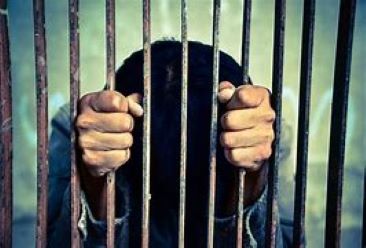
Senate Proposes Jail Time for Abusing Politicians and Failing to Recite National Anthem
On Tuesday, a contentious document known as the Counter Subversion Bill 2024 made waves on social media.
The bill, introduced by House Speaker Tajudeen Abbas, successfully passed its first reading and moved on to the second stage, where its fundamental principles will be debated on July 23. The proposed legislation seeks to impose severe penalties on Nigerians who either refuse to recite the newly adopted national anthem or insult politicians or community leaders. Offenders could face fines up to N5 million, along with prison terms ranging from five to ten years, or both.
In response, there has been a growing chorus among Nigerians demanding the bill’s repeal, condemning it as “anti-people” and likening it to a “decree in a democratic society.”
DETAILS OF THE BILL
The bill specifies that individuals found guilty of vandalizing national symbols, refusing to recite the national anthem or pledge, defacing places of worship with the intent to incite violence, or undermining the Federal Government will face fines of N5 million, a 10-year prison term, or both.
Additionally, the bill mandates fines of N2 million and a prison sentence of up to five years for those who set up illegal roadblocks, engage in unauthorized traffic control, impose unlawful curfews, or organize illegal processions.
Those who forcibly take over places of worship, town halls, schools, or any public or private space through coercion or deceit will be subject to a fine of N5 million or imprisonment for up to 10 years, or both.
Moreover, individuals who pledge allegiance to organizations that undermine Nigeria’s sovereignty will face fines of N3 million or a four-year prison term, or both.
The bill also imposes penalties for organizing unauthorized protests or roadblocks, or performing unauthorized traffic duties, with a fine of N2 million and a five-year prison sentence, or both.
RATIONALE BEHIND THE BILL
The introduction of the bill is aimed at addressing activities seen as threats to national security, stability, and public order. Historically, many politicians have viewed social media as a platform for free expression, albeit with limited visibility of those expressing dissent. However, there are concerns that these platforms are being used by certain groups to disrupt national peace, disregarding the authorities.
Recent examples include the mixed responses to Senate President Godswill Akpabio’s comment that hunger protesters should proceed with their demonstrations while politicians enjoy their meals, and the backlash against Chief of Staff to President Bola Tinubu, Femi Gbajabiamila’s call for social media regulation. Gbajabiamila argued that social media poses a societal threat and must be controlled due to its potential for widespread harm and unintended consequences.
The Counter Subversion Bill’s distinct penalties contrast with the provisions of the amended Cybercrime Act 2015, highlighting its unique approach to addressing these issues.
SPEAKER ABBAS’ JUSTIFICATION FOR THE BILL
On Wednesday, Speaker Abbas defended the bill, asserting that it was designed to enhance Nigeria’s anti-terrorism efforts by targeting subversive activities conducted by various groups, including associations, organizations, militias, cults, bandits, and other banned entities. He noted that similar legislation exists in countries like the UK, Spain, India, Turkey, Canada, and Australia.
Abbas also emphasized the House of Representatives’ commitment to public engagement, welcoming feedback and discussions from Nigerians to refine and improve the bill. He stressed that public concerns and suggestions are vital to shaping the final version of the legislation.




Add comment